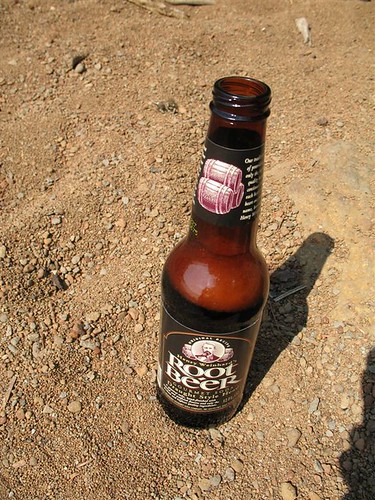Forest in the Summer
Vetiver Truffle

My last experiment with vetiver was actually a solid perfume. I was so smitten with my Vetiver Rouge, that I wanted to turn it into a crème parfum. But I also really loved the coffee & vetiver accord, so I decided to use some coffee oil in the formula. In that sense, there is nothing new in this particular vetiver, except for merging Vetiver Rouge with Vetiver Noir. Bear with me for a few more lines and you’ll see what’s new in this particular vetiver rendition.
I usually use a base of jojoba oil and raw beeswax (the unbleached one, which still retains the lovely honey and pollen notes, and adds a new dimension to the final product). This time, I decided to do something a bit different: This time, for my vetiver solid perfume, I decided to use a completely different base oil: Black Truffle Oil!
 Black Truffle Oil is an infusion of the rare fungi into olive oil. So you see, the base oil is actually an olive oil. The result is a slightly different texture – a bit lighter, and more like an unguent. The black truffle note is very tenacious – earthy, dirty and sensual. Along with the subtle honey notes, the tarragon, coffee and 5 types of artisanal vetiver oils (including the Ruhs from India) this is definitely a different vetiver from what I’ve smelled before. I may even be tempted to turn it into a parfum oil, with a base oil made of a combination of Black Truffle Oil and jojoba oil.
Black Truffle Oil is an infusion of the rare fungi into olive oil. So you see, the base oil is actually an olive oil. The result is a slightly different texture – a bit lighter, and more like an unguent. The black truffle note is very tenacious – earthy, dirty and sensual. Along with the subtle honey notes, the tarragon, coffee and 5 types of artisanal vetiver oils (including the Ruhs from India) this is definitely a different vetiver from what I’ve smelled before. I may even be tempted to turn it into a parfum oil, with a base oil made of a combination of Black Truffle Oil and jojoba oil.Thinking about it - that would be much easier to pack as a sample and share with you as well. The reason why I didn't think of it before completely escapes me...
This vetiver entry closes this cycle of vetiver posts. I love vetiver, so I won’t be surprised to come back to it later. But for now, I need my vetiver ideas to be brewing on low heat, until the right ideas will bubble up to the surface…
* The silver box above, containing the vetiver solid perfume is an ethnic Moroccan piece given to me by my X in-laws when they came back from Morocco years ago. Isn't it lovely?
** If you wish to try Vetiver Truffle, or any of the previous four vetivers (Wilde Vetyver, Vetiver Blanc, Vetiver Noir and Vetiver Rouge) samples can be obtained via email. The price is the same for all my other samples ($5.99 plus shipping). If you order all four, you will also get a free sample of the solid vetiver perfume (to be announced here tomorrow).
Vetiver Rouge
My recent vetiver experiments concluded with a fourth liquid (alcohol based) perfume, which I temporarily named Vetiver Rouge. From all of my vetivers, this is the most complex and ambitious in a sense. I was trying to create a more rounded, multifaceted fragrance. Still, vetiver is the theme. But to the vetiver I added a note which I have never seen together before: the elusive, distinctive, intensely licorice-sweet yet somewhat green - Tarragon Absolute. I used again a few types of vetiver, but the most tenacious of them, the Ruh Khus and the Ruh with Attar Mitti (baked earth) dominate with their copper undertones (origininated at the traditional Indian still, which is made of copper).
This brew of myriad little sweet rootlets, a rooty beverage, reminiscent of the “Sous” (licorice roots iced tea) that the Arab merchants used to carry in tapped copper kettles on their backs alongside the sour & salty Tamarhind and (the less exciting) lemonade.
Of all my vetiver scent, this is the one I am most excited about. We’ll see where this will lead me…
* If you wish to try Vetiver Rouge, or the previous three vetiver (Vetiver Blanc, Vetiver Noir and Wilde Vetyver) samples can be obtained via email. The price is the same for all my other samples ($5.99 plus shipping). If you order all four, you will also get a free sample of the solid vetiver perfume (to be announced here tomorrow).
Vetiver Noir
One of the most original vetiver accords I’ve smelled is Black Vetyver Café by Jo Malone. I was so impressed with this imaginative combination, yet hoped the coffee note will linger longer. Given that coffee note is a heart note and not a base note dictates that it cannot last for too long on the skin. But in Black Vetyver Café it is more of a top note than a heart note and disappears really fast, leaving behind mostly woody vetyver. Therefore, I simply could not resist the temptation to try my hand at combining these two essences in their natural form – black coloured just like the dark-roasted coffee beans and vetiver oils from around the world in different proportions.
I decided to go wild with earthy vetiver varieties from India, including the co-distillation with Mitti Attar. The pungency and the earthiness and a hint of brash greenness seems to provide an interesting counter point to the coffee. And also by staying away from the “woody” I was hoping to create something different, albeit not original (Jo Malone deserves all the credit for thinking of this combination!). Indonesian vetiver adds a rough smoky touch, and the wild Indian vetiver oil (Ruh Khus) adds a sweetness that is well rounded and complex. To this I added nutmeg absolute. There is something about nutmeg absolute that just works so well with vetiver. It’s so sweet and rich (not like the oil, which is quite sharp and peppery!). It adds warmth to the sweet yet cool earthiness of vetiver. I could barely resist the temptation to sneak in a few drops of cardamom CO2, which goes so fantastically with coffee. But I don’t like to repeat myself.
I am really enjoying this vetiver mod. Perhaps it is not my favourite so far of all the three, but I feel I am getting somewhere in exploring the possibilities that vetiver has to offer. Hopefully by the end of this journey I will come up with something that I can truly call my own vetiver.
I like the complexity in this scent, even though it only has three elements: vetiver, coffee and nutmeg. It is earthy-sweet and warm, and feels rooty and almost edible without being obviously spicy or sweet. I am wondering what would happen if I chose a more mellow vetiver as a pivotal point, maybe the Sri-Lankan oil. Or add another woody element such as patchouli, or sandalwood or agarwood. Yet I think I should be trying a new mod before drawing any conclusions. In fact, I much rather keep blending vetiver-dominated scents and discovering the interaction between vetiver and other notes. It’s a fascinating study and it really should never end.
Samples of Vetiver Noir, Vetiver Blanc and Wilde Vetyver (Khus Khus) are available for you to try, you can get all three samples for $15 including shipping world wide. Just email me and let me know, or simply PayPal me and I will ship it to you immediately.
Khus Khus (Wilde Vetyver)
In my second mod of vetiver I wanted to focus on the unique Ruh Khus, a traditional East Indian distillation of wild vetiver. The note is challenging for the uninitiated-Khus-Khus-nose. As I mentioned earlier, this distillation in copper alembics makes for a very unusual note, not just because of the raw, earthy tone of the root itself, grown in Indian soil, but also because some of the copper remains in the oil and adds colour as well as olfactory residues.
I wanted to go wild all the way with the Ruh Khus, and bring out its characteristics by adding two additional oils that are quite unusual as well: Attar Mitt, which is a distillation of baked Indian earth into sandalwood oil, and also a co-distillation of both vetiver and Mitti (earth). All three oils, Ruh Khus, Attar Mitti and the co-distillation of Indian vetiver and baked earth make for a genuinely earthy olfactory experience.
To balance some of the sharpness from the copper tones of the Ruh Khus I also added a bit of the milder varieties of vetiver in my possession: the woody vetiver from Sri Lanka, and the sweet & tart Haitian vetiver. I also used a bit of the Indonesian vetiver to add body and intensity, and balanced it all out with a tad of Peru balsam, for a rounding, smooth sweetness.
The result was at first alarmingly earthy, but it mellowed with time. Last week I sensed in the mid-top notes a certain aromatic green sweetness that made me recall the unusual scent of unripe guavas. This has subsided a week later (and about 4 weeks after maturing the mod), and now presents a new olfactory resemblance to freshly uprooted root-vegetables, particularly garden carrots, dug out of the garden in a cold winter day and eaten by the enthusiastic gardener after rubbing in the wet grass – which inevitably means that some dirt is consumed along with the crispy sweet vegetable.
The dry down is indeed showcasing the natural, earthy complexity and simple harmony of Ruh Khus. The connection to earth cannot be portrayed in a more immediate way than these particular essences. Once you delve into it, I hope you will understand why it is called “The Oil of Tranquility” in India.
Samples of Wilde Vetyver (Khus Khus) are available for $8 including shipping internationally. You may also order




